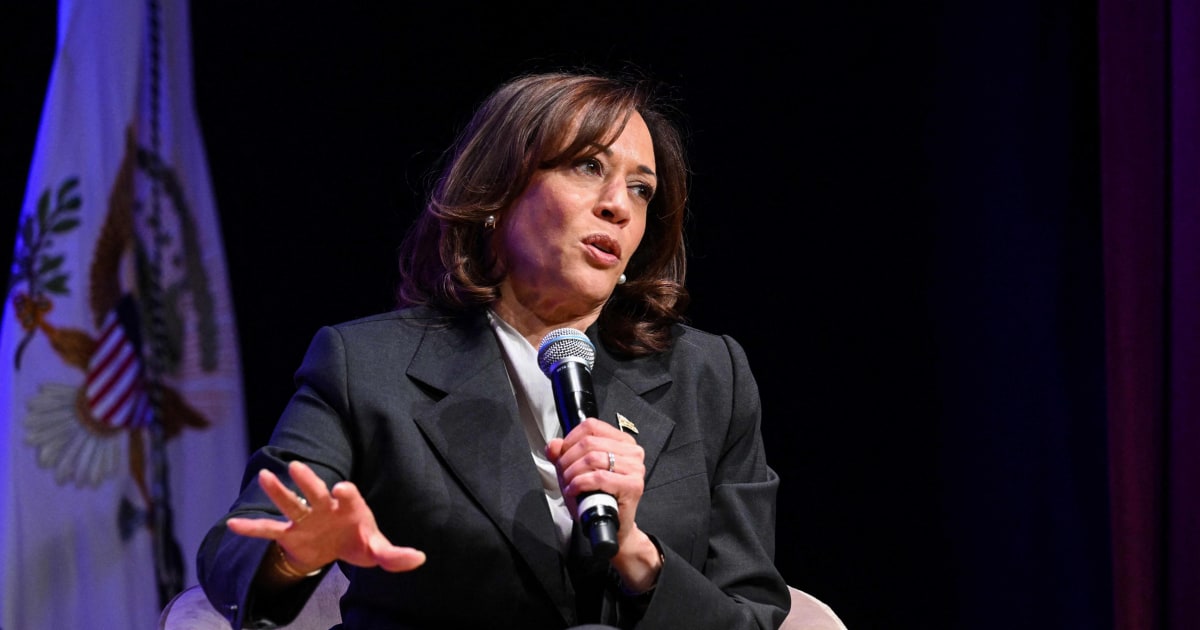
At a White House celebration for Asian American and Pacific Islander Heritage Month, Vice President Kamala Harris sat down for a conversation about racism, representation and being the eldest daughter.
In a conversation moderated by “Never Have I Ever” actor Poorna Jagannathan and Just Like Media CEO Jerry Won, Harris sent a message to the AAPIs celebrating this month.
“You may find when you walk into a room that you are the only one who looks like you or has your lived experiences,” she said. “My message is: Walk in with your chin up, shoulders back — knowing that you are representing the voices of so many people who are proud that you’re in that room. We are all in that room with you. You are not walking in that room alone.”
Addressing a crowd of 1,300 AAPI community members at the White House Forum on Asian Americans, Native Hawaiians, and Pacific Islanders, she touched on the leadership she’s seen from the next generation of children of immigrants, pushing the bar for inclusion.
“If we are to be fully actualized, we should not be excluded from any system,” she said.
Jagannathan and Harris started the conversation on motherhood. The actor drew parallels between the character she plays on “Never Have I Ever” and the experiences of South Indian moms trying to raise their kids in the U.S.
“Culturally, the love of a mother, the love of a grandparent, it’s crossing cultures and languages,” Harris said.
Harris often talks about the story of her own mother, who immigrated to the U.S. when she was 19 in 1959.
“My mother was the eldest, and we all know culturally what it means to be the eldest,” she said. “She was this brown woman with an accent, and I was also acutely aware, as the eldest child, of how she would be treated.”
Her mother, who was a pioneering breast cancer researcher, instilled in her the drive to fight for immigrant women in particular, she said. She talked about continued fallout from the Supreme Court’s overruling of Roe v. Wade last year.
“This issue of fighting for women’s reproductive care, for me, is something that’s very personal in terms of a lifelong acknowledgement and understanding about the disparities and the unfairness and the indignities that women can face in the health care system,” she said. “If you compound race, if you compound language barriers, profound impacts result.”
It’s a cultural moment that requires AAPIs to be politically active and to fight against injustice, she said.
“There are attempts happening in our society to roll back all the hard-won freedoms that we have fought for,” she said. “This is a time for everyone to stand and speak out.”
Source: | This article originally belongs to Nbcnews.com









